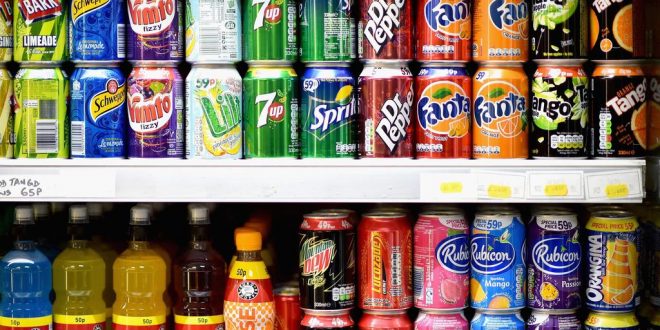Saudi Arabia will impose a 100 per cent tax on electronic cigarettes and a 50 per cent levy on some sugary drinks, broadening the excise duty on similar products enforced in June 2017.
The Arab world’s largest economy already has a 100 per cent excise duty on cigarettes and tobacco products, and a 50 per cent on energy drinks.
The kingdom’s General Authority for Zakat and Tax (Gazt) said it approved amendments to existing regulations on May 15. According to the guidance published in the official gazette on Saturday, a 100 per cent tax will be enforced on e-cigarettes and its accompanying tools, and a 50 per cent tax on soft and sugary drinks.
The new rules raise the typical cost of a can of Coca-Cola to 5 Saudi riyals, from 2.50 riyals currently, according to supermarket retailer Carrefour’s Saudi Arabia website. The authority will set the date for implementation of the new duties shortly, it said.
The six-member GCC has pledged to introduce excise and other taxes including VAT, to boost non-oil revenues and reduce consumption of harmful products that cause diabetes, obesity and other health risks.
Each country is implementing taxes at different times. The UAE imposed excise duty on certain items at the end of 2017 and is now considering the inclusion of more products on its excise tax list, according to a statement by the Ministry of Finance in April.
The ministry is conducting a joint study with officials in Saudi Arabia “on the addition of new goods to the selective tax list, as well as to determine tax rates on certain harmful substances”, it said.
Prices of current applicable products including tobacco and its byproducts, and carbonated and energy drinks, have doubled in the UAE since the introduction of the levy.
Saudi Arabia’s excise tax aims to bolster non-oil revenues, as it implements a far-reaching package of reforms under the Vision 2030 economic diversification agenda.
The measures have started to yield positive results. The International Monetary Fund estimates the kingdom’s gross domestic growth may be slightly higher than the Washington-based lender’s earlier 1.8 per cent forecast, as the non-oil sector is expanding faster than the rest of the economy.
In 2018, Saudi Arabia’s GDP growth rebounded to 2.2 per cent after contracting in 2017. Real oil GDP increased by 2.8 per cent while non-oil GDP growth rose 2.1 per cent, the IMF said after article IV consultations with the country this month.
Real non-oil growth is expected to strengthen further to 2.9 percent in 2019, compared to 0.7 percent for the real oil economy in 2019 and 1.9 per cent for overall real GDP growth this year – assuming the kingdom continues to produce the level of oil under the current Opec agreement.
“If Saudi Arabia increases oil production, then oil GDP growth would be higher, as would export and fiscal revenues,” the IMF said last week.
“Over the medium-term, the [IMF] team expects a strengthening in non-oil growth to around 3 to 3.25 per cent as the ongoing reforms yield dividends and overall real GDP growth to settle around 2.5 per cent.”
–
The National
 UAE BARQ برق الإمارات – نبضك
UAE BARQ برق الإمارات – نبضك


